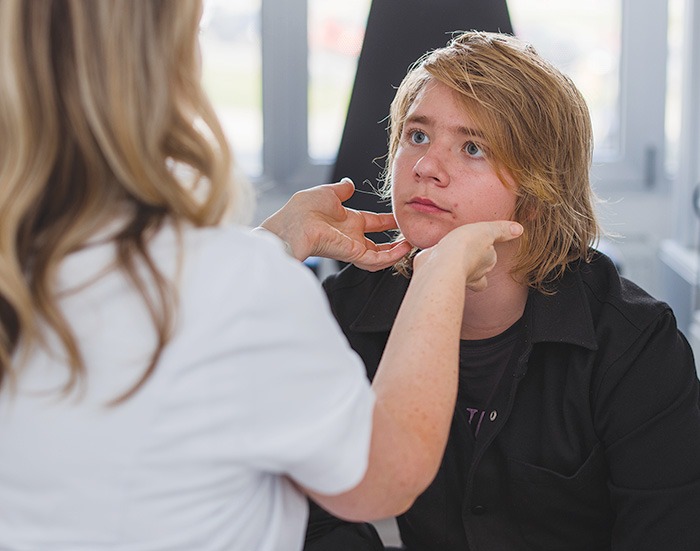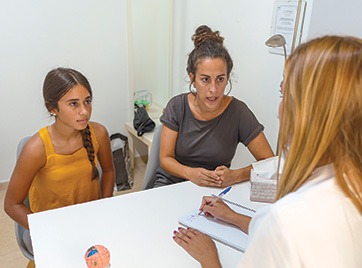A replacement for cotton wool and tape at injection sites and a new app that tracks expiry dates on medicines to prevent wastage were among six innovative ideas to advance patient care presented to judges at yesterday’s Pharmacy Shank Tank.
The PSA21 Virtual session, sponsored by Viatris and hosted by PSA’s Training and Delivery Lead Kevin Ou, also attracted many viewers keen to vote for the popular People’s Choice award.
The killer ideas were presented in 5-minute lots to the three sharp-toothed leaders who each had $3,000 to invest in products they felt had the best chance of success.
The judges, each of whom felt compelled to split their investments into more than one concept, were PSA Vice President Renae Beardmore, Joey Calandra, Head of Strategy at Vitality and Viatris’s Product Manager, David Lai.
They recognised the merit in propositions such as Tien Bui’s idea for free pharmacist metabolic monitoring of patients using second-generation antipsychotics. They also acknowledged that, while there was ’an absolute need’ for Chloe Langfield and Brad Butt’s concept for an app aimed at identifying and bridging gaps in physical, mental and social wellbeing among patients undergoing opioid maintenance therapy, more work may be needed to refine the operating details.
But it was University of New England pharmacy lecturer Anna Barwick MPS, founder of PharmOnline, Australia’s first pharmacist-led telehealth service, who took out the $1,000 People’s Choice award with the Sugar Baby telehealth clinic. She was also given investment money from two of the judges.
Part of PharmOnline, Sugar Baby is a fee-for-service telehealth clinic for isolated, pregnant women with gestational diabetes mellitus.
Walcha, NSW-based Ms Barwick won another $2,000 investment from Mr Lai to put towards marketing and promotion to make it more visible online – without having to type in the actual name of the business.
Another $1,000 investment for her concepts came from Mr Calandra.
He also used his remaining $2,000 to invest – ‘loved it’ – in Victorian PSA member Angelo Pricolo’s Hy Dot, a thin hydrocolloid post-vaccination covering that is waterproof, easily removed and faster and simpler to apply than the current standard-care cotton wool and tape at injection sites.
Cotton wool balls and tape, when removed, can cause more bleeding, as well as skin tears in old and fragile skin, Mr Pricolo convinced the judges, suggesting there had to be something better.
Hy Dot is already in production on a small scale and is TGA-approved and registered as a Class 1 medical product.
Mr Lai gave his remaining $1,000 to Lindsey Clark MPS and Sunit Ruparelia MPS, (also an IT developer at Esquad Technologies) for their expiration date management software ShrinkMan (managing shrinkage).
Specifically targeted at pharmacies, it is currently in production and in Apple’s App Store (available in Australia and New Zealand) and aims for a better way to avoid inconsistent recording of expiry dates and wastage of pharmacy inventory.
Pharmacy staff use the app to scan the barcode of a product that will soon be out of date, to plan what will be done with the stock before it expires. The advantage is that all the information is central, with no need to write barcodes or names, quantities and expiry dates when it is easy to lose the paper-based records. All Australian pharmacy barcodes have been pre-loaded into the app.
Ms Beardmore ‘split’ her investment ‘50/50’. She gave $1,500 to ShrinkMan ‘to improve their marketing because I do think they need to increase exposure in the industry’.
Her other $1,500 went to Steven Krashos to help pharmacists promote telehealth for correct inhaler technique, or other device use.
‘Whilst there’s a little bit of your value proposition that has to be more defined, I do think it’s a self-care product,’ she said.
‘And self-care, I do believe, is complimentary to telehealth. Self-care is a priority of government, and I think your product can help’, she said, while advising Mr Krashos to ‘expand beyond inhalers’.



 Pharmacists have always prescribed, but they have the potential to prescribe much more
Pharmacists have always prescribed, but they have the potential to prescribe much more



 Sponsorship information
Sponsorship information


 Talking to patients who have questions
Talking to patients who have questions





